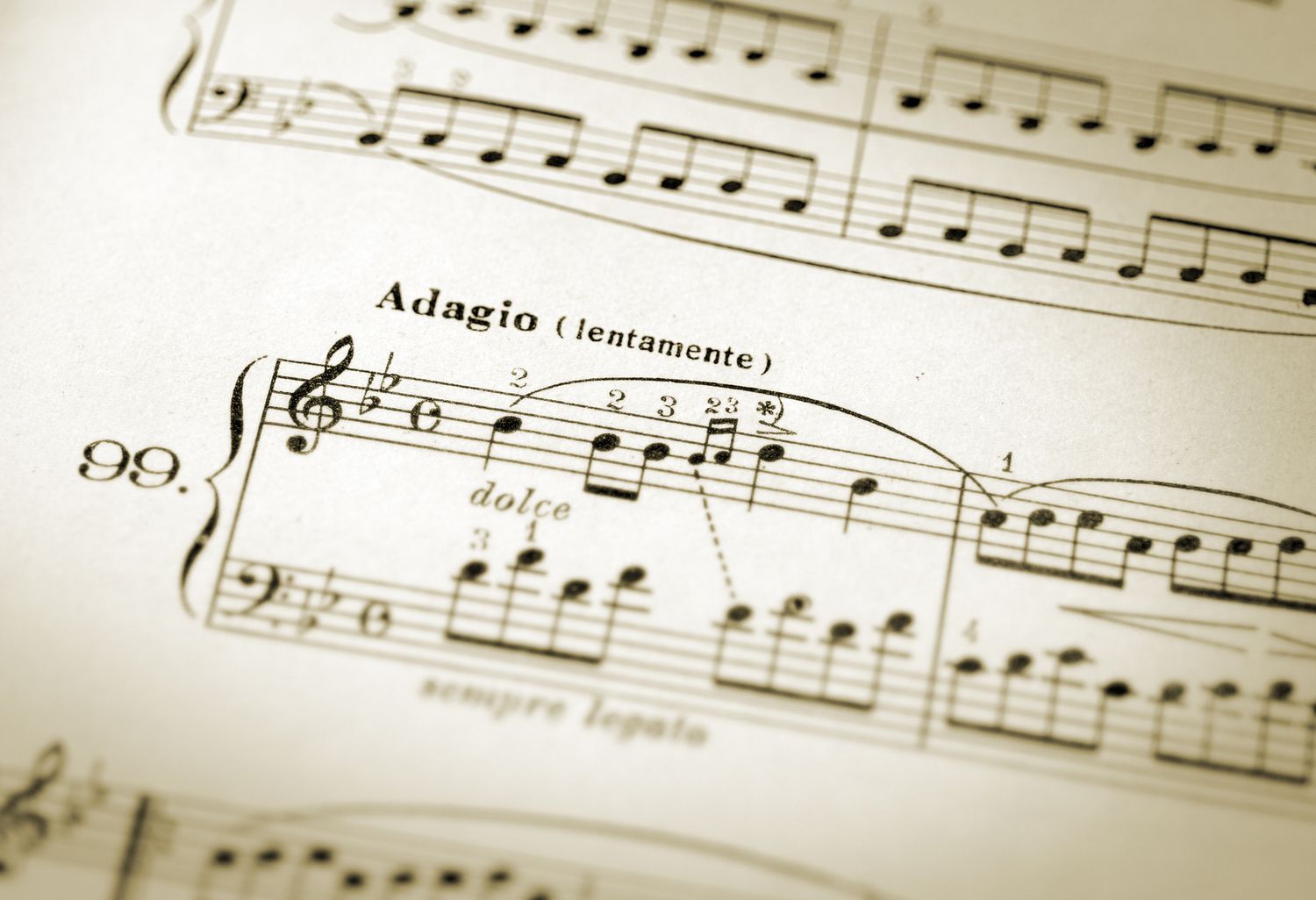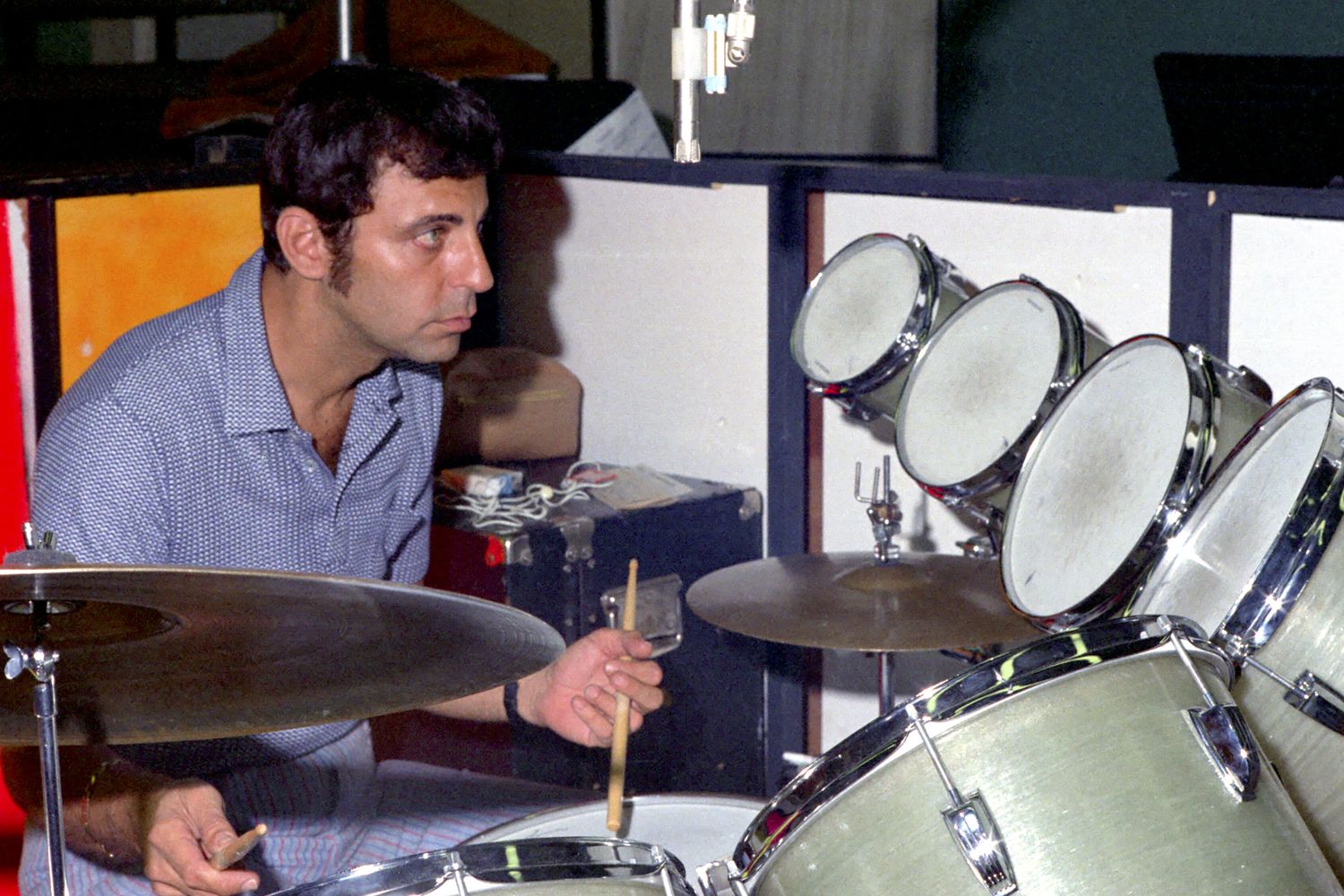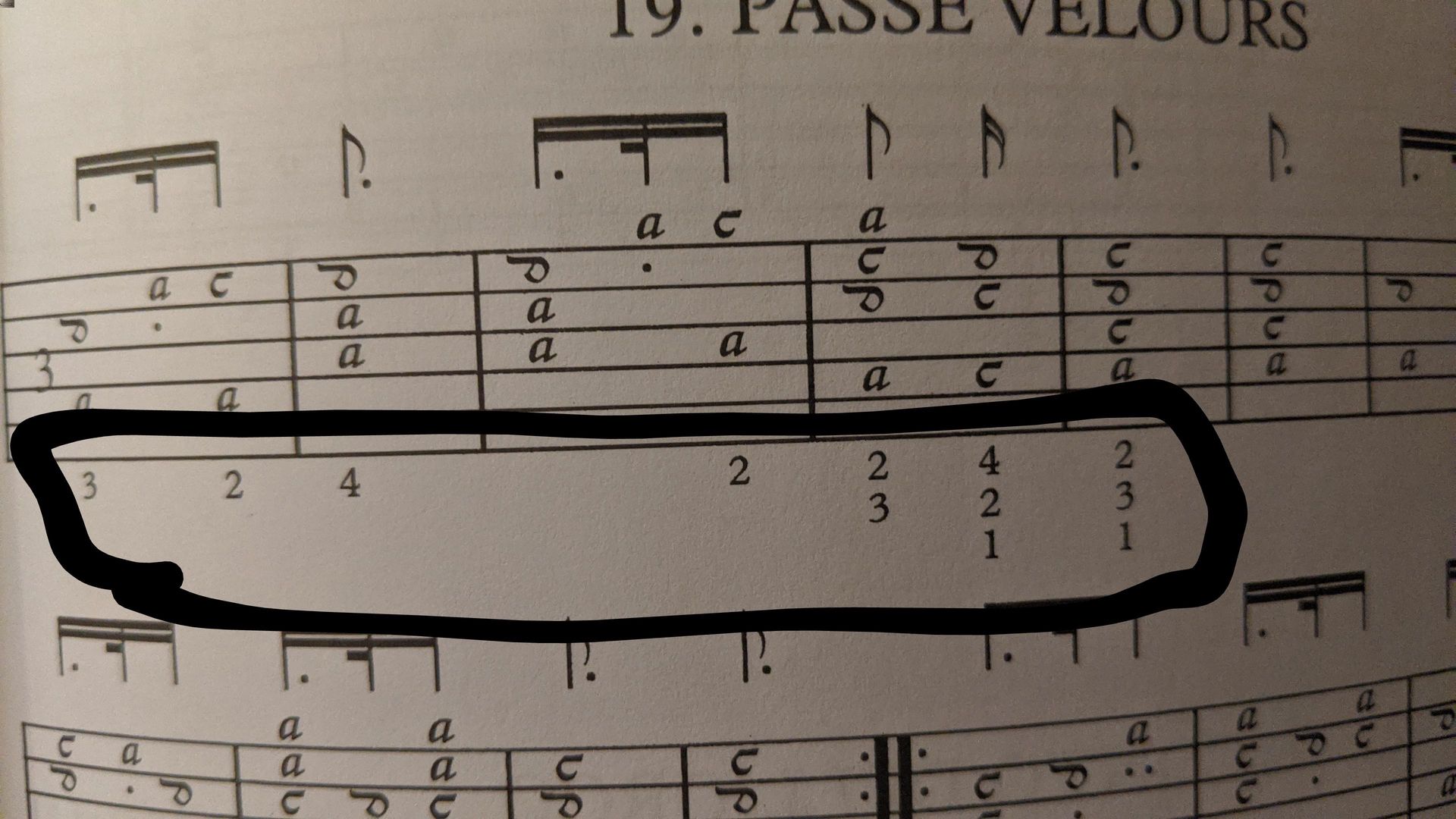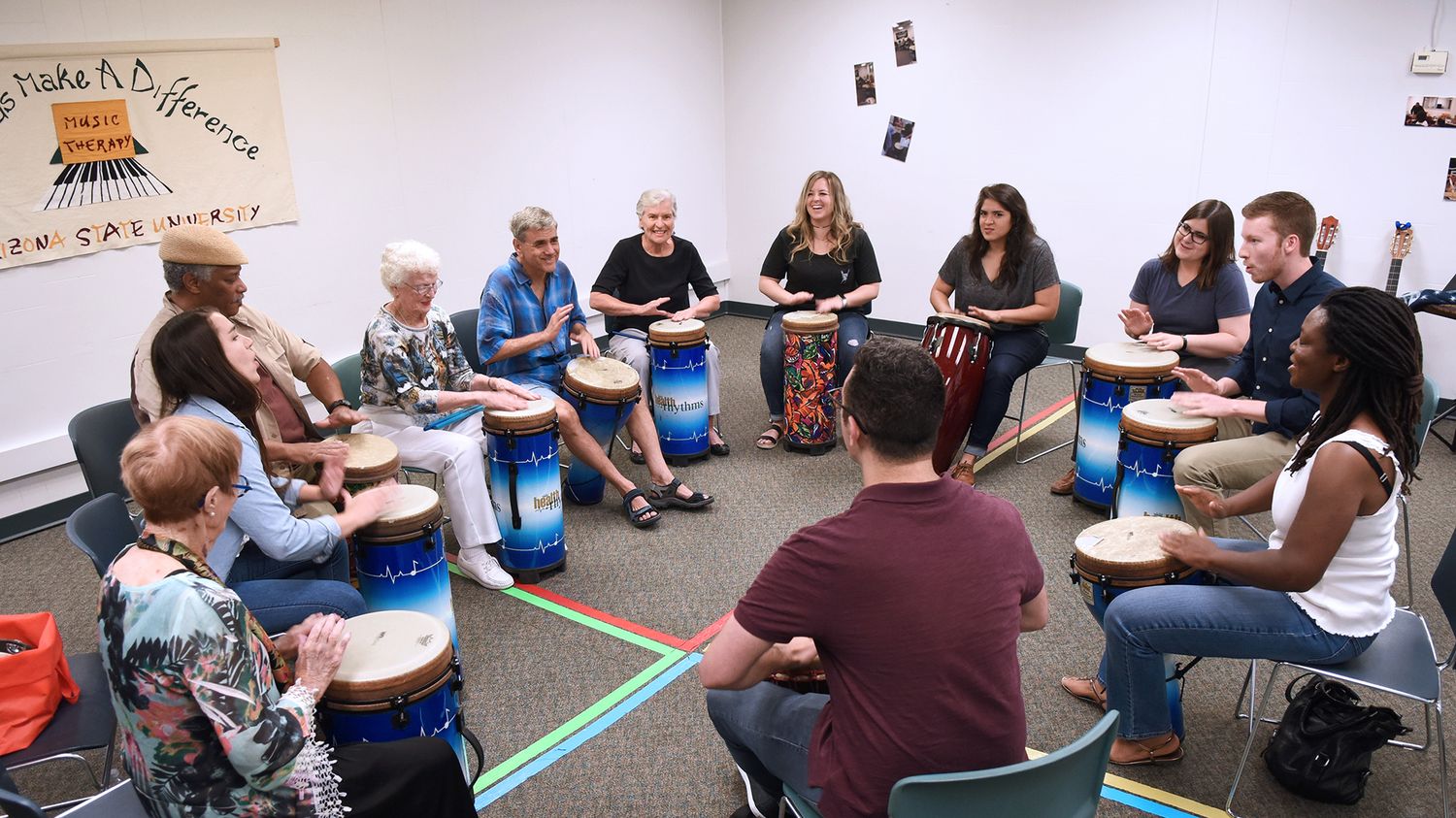Home>Events & Info>Acapella>What Do You Mean By Acapella
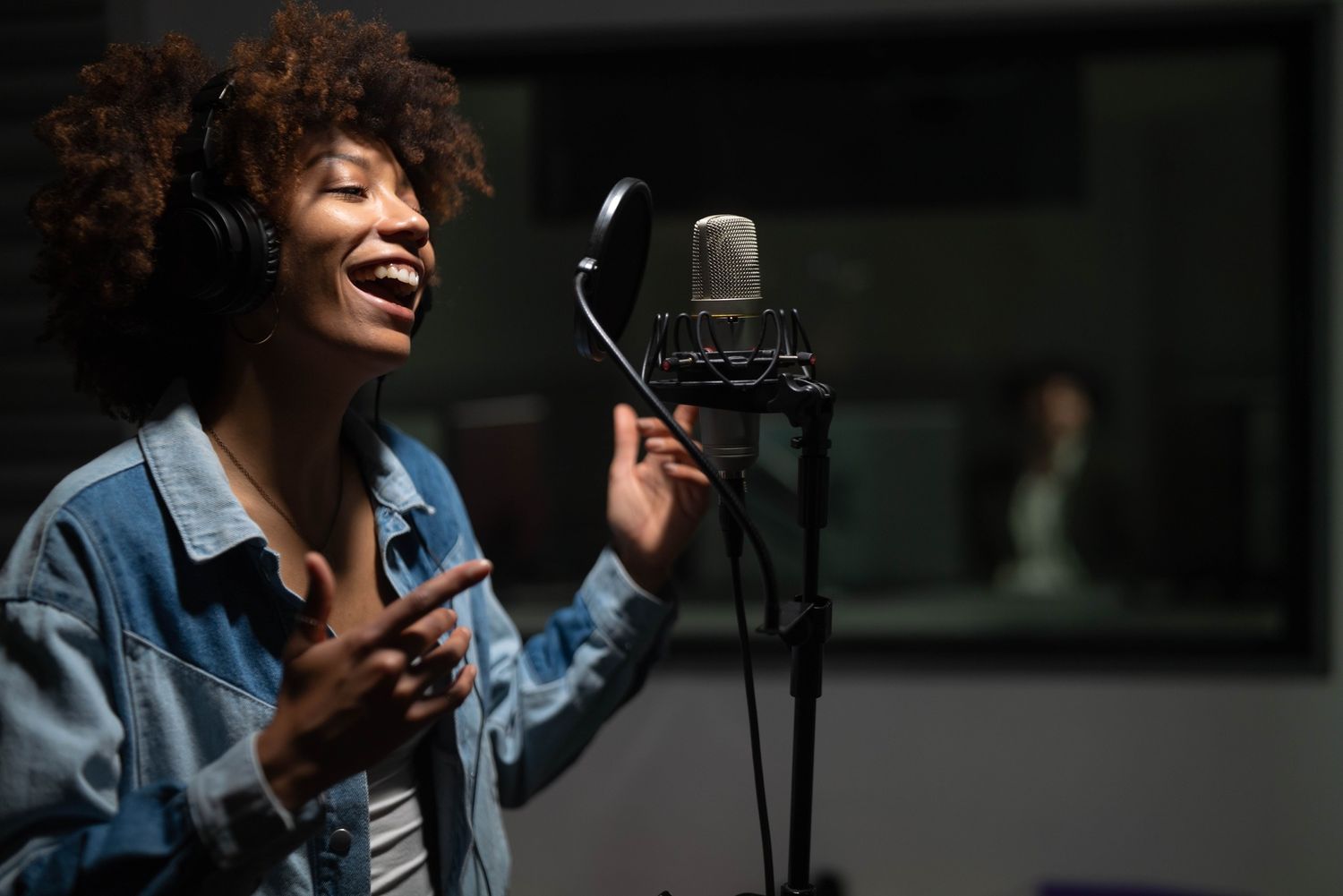

Acapella
What Do You Mean By Acapella
Modified: January 29, 2024
Learn the meaning of Acapella and how it is used in music. Discover the beauty of vocal harmony and the power of singing without instrumental accompaniment.
(Many of the links in this article redirect to a specific reviewed product. Your purchase of these products through affiliate links helps to generate commission for AudioLover.com, at no extra cost. Learn more)
Table of Contents
Introduction
Welcome to the mesmerizing world of acapella music! This unique and captivating form of musical expression has been captivating audiences for centuries. Whether you’re a fan of vocal harmonies, impressive vocal techniques, or just love the pure beauty of the human voice, acapella offers a truly remarkable experience.
Acapella, which means “in the style of the chapel” in Italian, refers to music that is performed purely by the human voice, without any instrumental accompaniment. It allows singers to showcase their vocal talents and create rich harmonies using only their vocal cords. With its origins dating back to ancient times, acapella has evolved into various styles and genres, gaining recognition and popularity worldwide.
The beauty of acapella lies not only in its vocal purity but also in the creativity and ingenuity that goes into arranging and performing the music. With no instruments to rely on, acapella groups must rely on their voices to replicate the melodies, harmonies, and rhythms of a song. This requires immense skill, tight coordination, and a deep understanding of musical dynamics.
Throughout the years, acapella has captivated audiences in various settings, from religious ceremonies and choral performances to street-corner performances and contemporary music groups. It has the power to transport listeners, evoke emotions, and create a sense of unity through the sheer power and versatility of the human voice.
In this article, we will explore the rich heritage, musical characteristics, various styles, benefits, techniques, and even take a glimpse into some popular acapella groups. Whether you’re new to acapella or a seasoned fan, join us as we dive into the enchanting world of acapella music and discover what makes it such a special and cherished art form.
Definition of Acapella
Acapella is a musical genre that features unaccompanied vocal performance. It is a style of music where singers use only their voices to create harmonies, melodies, and rhythm, without the use of any instruments. The term “acapella” is derived from the Italian phrase “a cappella,” which translates to “in the style of the chapel.”
One of the defining characteristics of acapella is the absence of instrumental accompaniment. Instead, the singers rely solely on their vocal abilities to deliver a full musical experience. This requires precise control over pitch, harmonies, dynamics, and rhythm to effectively replicate the sound of instruments and create a well-balanced musical composition.
Acapella music can encompass various styles and genres, including pop, classical, jazz, gospel, R&B, and more. The versatility of the human voice allows acapella groups to cover popular songs, create unique arrangements, and even compose original pieces.
The roots of acapella can be traced back centuries, with its origins in religious and choral music. Choirs and vocal ensembles in religious settings would sing acapella to showcase the beauty and purity of the human voice. Over time, acapella music has evolved and expanded beyond its religious origins, becoming a popular form of artistic expression in both traditional and contemporary contexts.
While acapella music typically involves multiple vocalists singing in harmony, solo acapella performances are not uncommon. Solo singers can demonstrate their vocal prowess by performing a song without any instrumental backing, relying solely on their voice to carry the melody and capture the listener’s attention.
With the rise of technology and the availability of recording software, acapella has also found its place in the digital realm. Online platforms and social media have enabled acapella enthusiasts to record and share their performances, creating vibrant communities and fostering collaboration among vocalists from around the world.
Through its unique vocal arrangements, captivating harmonies, and the sheer talents of the singers involved, acapella continues to captivate audiences and thrive as a distinctive and cherished musical genre.
Historical Background
The roots of acapella music can be traced back to ancient times, making it one of the oldest forms of musical expression. Acapella singing has been present in various cultures and societies throughout history, playing a significant role in religious rituals, folk traditions, and communal celebrations.
One of the earliest known records of acapella singing dates back to the Byzantine Empire in the 4th century. The Byzantine chant, also known as Byzantine acapella music, was a prominent form of religious music characterized by its unique melodic structure and monophonic vocal style. This form of chanting influenced the development of acapella music in Western Europe during the Middle Ages.
During the medieval period, acapella music flourished in the form of Gregorian chants. These chants, named after Pope Gregory I, were monophonic melodies sung in Latin by choirs in monasteries and churches. The absence of instrumental accompaniment allowed the singers to showcase the purity and beauty of their voices and create a solemn and ethereal ambiance.
In the Renaissance era, acapella music continued to evolve and gain prominence. Composers such as Palestrina, Josquin des Prez, and Monteverdi composed intricate polyphonic vocal works, showcasing the rich harmonies and counterpoint achievable through acapella singing. The polyphonic style involved multiple voices singing independent melodic lines, creating complex and harmonically rich compositions.
During the Baroque period, acapella music took a different form with the rise of the motet. Motets were sacred choral compositions featuring multiple voices, often with instrumental accompaniment. However, there were instances where motets were performed acapella, emphasizing the importance of the vocal aspect and highlighting the technical skills of the singers.
In the 19th and 20th centuries, the acapella tradition persisted, with choral music becoming increasingly popular. Choirs and vocal ensembles, both professional and amateur, embraced acapella singing to deliver soaring harmonies and powerful musical performances. This era saw the emergence of renowned vocal groups and choirs, solidifying the place of acapella music in the classical music repertoire.
However, acapella singing is not exclusive to classical and religious music. It has also been an integral part of various folk traditions across different cultures. Folk songs and chants passed down through generations have been sung acapella, preserving cultural heritage and unity within communities.
Today, acapella music has evolved and expanded to include various contemporary genres, such as pop, jazz, and R&B. Acapella groups and vocal ensembles explore new arrangements, blending modern styles and techniques with the traditional roots of acapella music.
With its deep historical roots and continuous evolution, acapella music stands as a testament to the timeless power of the human voice, captivating audiences and preserving musical traditions across generations.
Musical Characteristics
Acapella music possesses several unique musical characteristics that set it apart from other musical genres. Its distinctive qualities stem from the absence of instrumental accompaniment, allowing the human voice to take center stage and showcase its versatility and expressiveness.
One of the key characteristics of acapella music is vocal harmony. Singers come together to create intricate harmonies by blending their voices in different ways. Harmonies can be achieved through various techniques, such as singing different pitches simultaneously or creating chords by layering different vocal parts.
Rhythm plays a crucial role in acapella music as well. Since there are no instruments to provide a steady beat, singers rely on their rhythmic precision and coordination to establish and maintain the pulse of the music. This requires a keen sense of timing and synchronization among the vocalists.
The use of dynamics is another crucial aspect of acapella music. Singers can manipulate the volume and intensity of their voices to create a wide range of musical expressions. They can softly whisper, build to powerful crescendos, or sing with a delicate restraint, highlighting the emotional depth of the music.
Acapella music also often incorporates vocal percussion, or beatboxing, to add rhythmic elements and mimic the sound of drums and other percussion instruments. Beatboxing involves creating percussive sounds, such as kicks, snares, and hi-hats, using only the mouth, lips, and vocal cords. This adds a dynamic and rhythmic dimension to acapella performances.
Another noteworthy characteristic of acapella music is its emphasis on vocal technique. Singers need to possess a strong command over their vocal range, control over pitch and intonation, and the ability to execute complex vocal runs, trills, and melismatic passages. The technical skills required for acapella singing are demanding, requiring precision and mastery of vocal techniques.
Acapella music also allows for improvisation and creativity. Singers can experiment with vocal embellishments, ad-libs, and variations in melody or harmony, infusing their unique style and interpretation into the music. This freedom of expression enables acapella performers to put their own stamp on a song and create truly personalized performances.
The interplay between individual voices within an acapella group is another fascinating characteristic. Each voice has its role, whether providing the melody, singing harmonies, or adding vocal percussions. This dynamic interaction creates a sense of unity and collaboration, making every performance a collective effort.
Overall, the musical characteristics of acapella music showcase the remarkable capabilities of the human voice. From intricate harmonies and rhythmic intricacies to dynamic expression and technical prowess, acapella music continues to captivate and inspire audiences worldwide.
Acapella Styles
Acapella music encompasses a wide range of styles and genres, showcasing the versatility of the human voice and its ability to adapt to various musical expressions. While the foundation of acapella remains the same – unaccompanied vocal performance – the styles within the genre offer diverse experiences and sonic landscapes.
Classical Acapella: Classical acapella focuses on performing traditional choral compositions from different eras, such as Renaissance motets, Baroque choral works, and sacred compositions. These performances often feature elaborate vocal arrangements, precise harmonies, and a focus on showcasing vocal techniques and control.
Contemporary Acapella: The contemporary acapella style emerged in the 20th century and encompasses a range of popular music genres. From pop, R&B, and rock to jazz and even hip-hop, contemporary acapella groups reimagine hit songs, creating unique vocal arrangements and setting them apart from the original recordings.
Gospel Acapella: Gospel acapella showcases the vibrant and soulful expressions of religious music. Rooted in African-American traditions, gospel acapella relies heavily on vocal harmonies, call-and-response patterns, and passionate vocal performances. It serves as a powerful medium for expressing faith, uplifting spirits, and touching the hearts of listeners.
Barbershop Acapella: Barbershop acapella is a distinctive style known for its close four-part harmonies and ringing chords. Originating in the late 19th century, barbershop acapella features a lead vocal, tenor, baritone, and bass, each singing their unique part to create rich and resonant harmonies. This style often includes intricate vocal embellishments and a strong emphasis on vocal precision.
Jazz Acapella: Jazz acapella combines the improvisational nature of jazz music with the unaccompanied vocal performance of acapella. Singers in jazz acapella groups explore scat singing, vocal improvisation, and intricate vocal arrangements to create a dynamic and swingin’ musical experience.
World Acapella: World acapella showcases the rich diversity of vocal traditions from different cultures around the globe. From African tribal chants to Indigenous vocal traditions and folk songs from various regions, world acapella groups celebrate the unique sounds and cultural expressions of different communities, uniting them through the shared experience of a capella singing.
These are just a few examples of the many acapella styles that exist. The beauty of acapella lies in its ability to adapt and fuse with different musical genres, creating new and innovative expressions that continue to evolve and captivate audiences worldwide.
Benefits of Acapella Singing
Acapella singing offers numerous benefits, both for individuals and groups, beyond the sheer joy of creating music with just the human voice. Whether you’re a seasoned vocalist or just starting your musical journey, exploring the art of acapella can have a positive impact on various aspects of your life.
Building Vocal Skills: Acapella singing provides a platform for developing and refining vocal skills. Singers must focus on pitch accuracy, harmonizing, and blending their voices, which helps improve intonation, aural skills, and overall vocal technique. The absence of instrumental accompaniment allows singers to identify and address any vocal weaknesses, resulting in increased vocal control and prowess.
Enhancing Musicality: Acapella singing fosters a deep understanding of musical dynamics, phrasing, and interpretation. Singers must listen closely to each other and adjust their dynamics, timing, and expression to create a cohesive and expressive musical performance. This heightened musicality translates to other musical endeavors, such as solo singing or playing instruments.
Promoting Collaboration and Teamwork: Acapella singing is inherently a collaborative art form. Singers must work together, melding their voices and adapting their parts to create a unified musical experience. This collaboration fosters teamwork, communication, and cooperation, as singers must listen and respond to one another, ultimately creating a harmonious blend of voices.
Improving Listening Skills: Acapella singing demands active listening and the ability to tune in to the subtle nuances of both the music and other singers. By honing their listening skills, vocalists become more attuned to harmonies, rhythm, and timing, allowing for better ensemble performance and musical understanding.
Building Confidence: Performing acapella in front of an audience, whether in a group or as a soloist, builds confidence and stage presence. Singers develop a sense of poise, learn to overcome stage fright, and experience the thrill of captivating an audience with their vocals alone. This newfound confidence can extend beyond the stage and positively impact other areas of life.
Fostering Creativity: Acapella music allows singers to showcase their creativity and individuality through vocal arrangements, harmonies, and improvisation. Singers have the freedom to experiment with different vocal techniques, adding their unique flair to performances. This encourages artistic expression and empowers singers to explore their creativity in a supportive musical environment.
Stress Relief and Emotional Well-being: Participating in acapella singing has been found to reduce stress, elevate mood, and improve overall emotional well-being. Singing releases endorphins, the body’s natural feel-good chemicals, promoting relaxation, reducing anxiety, and improving overall mental health. The close-knit nature of acapella groups also fosters a supportive and nurturing community, offering a sense of belonging and camaraderie.
Fun and Enjoyment: Above all, acapella singing is an enjoyable and fulfilling experience. The sheer pleasure of creating harmonies and melodies using only the human voice can bring immense joy and satisfaction. It allows singers to connect with the music on a deep level and share their passion with others.
Whether you’re singing in a professional ensemble, a community choir, or simply jamming with friends, the benefits of acapella singing are far-reaching, beyond the musical realm, making it a rewarding and enriching endeavor for everyone involved.
Techniques and Skills
Acapella singing requires a diverse set of techniques and skills to deliver captivating and harmonious performances. From mastering vocal precision to coordinating intricate harmonies, here are some essential techniques and skills that are crucial for acapella singers:
Pitch Accuracy: A fundamental skill for any vocalist, pitch accuracy is essential in acapella singing. Singers must develop a keen sense of intonation, accurately hitting each note and maintaining pitch consistency throughout the performance.
Vocal Blend and Balance: Achieving a seamless vocal blend and balance is crucial in acapella singing. Singers must match their vocal timbre and adjust their volume and dynamics to create a unified sound, ensuring that no one voice stands out over the others.
Harmony Singing: Harmony singing is an integral part of acapella music. Vocalists must have a solid understanding of harmony, be able to sing their designated parts confidently, and listen and adjust to the harmonies created by the group.
Rhythm and Timing: As there are no instruments to provide a steady beat, acapella singers must have excellent rhythm and timing skills. They must maintain a consistent pulse, execute intricate rhythms, and synchronize their vocal delivery with precision.
Vocal Techniques: Acapella singing offers a broad canvas for vocal techniques. Singers can explore various vocal effects, such as vibrato, runs, flips, and vocal embellishments, enhancing the expressiveness and dynamics of their performances.
Dynamic Control: Mastering dynamic control is crucial in acapella singing. Singers must be able to navigate seamlessly between soft and loud dynamics, effectively conveying the emotional nuances of the music and creating musical interest.
Listening Skills: Active listening is essential in acapella singing. Vocalists must attentively listen to others in the group, adjusting their own performance accordingly. This includes matching pitch, blending harmonies, and staying in sync with the other vocalists.
Breath Control: Proper breath control is vital for sustained and powerful singing in acapella performances. Singers must learn to control their breaths efficiently, ensuring sustained phrases and avoiding vocal strain.
Stage Presence: Acapella performances require not only vocal excellence but also stage presence. Engaging an audience with expressive gestures, eye contact, and an energetic presence enhances the overall impact and enjoyment of the performance.
Collaboration and Communication: As acapella singing is a collaborative endeavor, effective communication and collaboration are key. Singers must work together, listen to each other’s ideas, and communicate effectively to ensure a cohesive and harmonious performance.
These techniques and skills form the foundation for successful acapella singing. With practice, dedication, and a commitment to continuous improvement, singers can refine their abilities and deliver polished and captivating acapella performances.
Popular Acapella Groups
Acapella music has gained widespread appreciation and popularity, thanks to the immense talent and creativity of various acapella groups. These groups have captivated audiences worldwide with their exceptional vocal abilities, innovative arrangements, and dynamic performances. Here are some of the most popular acapella groups that have made significant contributions to the genre:
Pentatonix: One of the most renowned acapella groups of our time, Pentatonix rose to fame after winning the television show “The Sing-Off” in 2011. Known for their incredible vocal harmonies and beatboxing skills, Pentatonix has reimagined popular songs across multiple genres and amassed a massive fan base with their unique style and energetic performances.
Home Free: Home Free is an American acapella group specializing in country music. With their impressive vocal range and tight harmonies, the group has gained widespread recognition and success, releasing several albums and earning accolades for their distinct sound and captivating stage presence.
Straight No Chaser: Formed in 1996 at Indiana University, Straight No Chaser gained international attention after a video of their acapella rendition of “The 12 Days of Christmas” went viral on YouTube in 2007. The group’s rich harmonies, humorous performances, and blend of pop and traditional songs have earned them a dedicated fan following and numerous album releases.
Naturally 7: Renowned for their unique “vocal play” technique, Naturally 7 takes acapella to a whole new level. The group seamlessly blends their harmonies with beatboxing, using their voices to mimic various instruments and create a full-band sound. Their innovative approach has gained them global recognition and collaborations with esteemed artists like Michael Bublé and Quincy Jones.
Voctave: Known for their breathtaking choral arrangements and lush harmonies, Voctave is a ensemble group that specializes in Disney, pop, and classical music. Their renditions of beloved Disney songs have garnered millions of views on YouTube, showcasing the power and beauty of acapella music.
The Swingle Singers: Established in the 1960s, The Swingle Singers have been a pioneering force in the modern acapella movement. They became known for their unique interpretations of classical and jazz music, combining intricate vocal arrangements with vocal percussion. Their creativity and talent have inspired generations of acapella enthusiasts.
Acapella groups like Pentatonix, Home Free, Straight No Chaser, Naturally 7, Voctave, and The Swingle Singers are just a few examples of the many remarkable groups that have left an indelible mark on the acapella music landscape. Through their exceptional vocal abilities and remarkable performances, these groups have brought acapella music into the mainstream and continue to inspire and entertain audiences worldwide.
Acapella in Education
Acapella music has found a valuable place in educational settings, offering numerous benefits to students of all ages. From elementary schools to universities, acapella programs and choirs provide unique opportunities for students to develop their musical abilities, build essential skills, and foster a love for singing.
Enhancing Musical Education: Incorporating acapella singing into educational curricula provides students with a hands-on approach to music education. It allows them to explore vocal techniques, develop aural skills, learn music theory, and gain a deeper understanding of musical dynamics in an interactive and engaging manner.
Building Vocal Technique: Acapella programs help students refine their vocal technique and develop essential skills such as breath control, pitch accuracy, harmonization, and blending. Singing in a cappella groups encourages students to listen and adapt to other voices, improving their musicianship and ensemble skills.
Fostering Collaboration: Acapella singing fosters collaboration and teamwork. Students in acapella groups learn to work together, blend their voices, and synchronize their performances. They develop important communication skills, patience, and the ability to give and receive constructive feedback, all of which are valuable in group dynamics beyond the musical realm.
Strengthening Confidence and Self-expression: Participating in acapella groups can boost students’ self-confidence and self-expression. It allows them to showcase their abilities, overcome stage fright, and develop a sense of individuality in their performances. Acapella singing provides a platform for students to discover their unique voice and express themselves creatively.
Promoting Cultural Awareness: Acapella programs often incorporate diverse styles of music from different cultures and time periods. This exposure to a range of musical traditions promotes cultural awareness and appreciation, helping students develop empathy, respect, and a broader understanding of the world.
Encouraging Creativity: Acapella singing encourages students to explore their creativity and experiment with vocal arrangements and harmonies. It challenges them to think outside the box, make artistic choices, and develop their musical arrangements. This fosters creative thinking, problem-solving skills, and the ability to innovate within musical boundaries.
Providing Performance Opportunities: Acapella groups in educational settings offer students the chance to showcase their talents through performances. These performances can occur within the school community or beyond, such as local events or competitions. It helps students develop stage presence, gain experience in live performance, and cultivate a sense of pride and accomplishment in their musical achievements.
Promoting Personal Growth and Well-being: Acapella singing has numerous mental and emotional benefits for students. It provides a creative outlet, helps reduce stress, improves mood, and promotes a sense of belonging and camaraderie among group members. Singing in acapella groups offers students an outlet for self-expression and personal development beyond the academic sphere.
From fostering musical education and collaboration to promoting confidence, self-expression, and personal growth, acapella programs in education play a vital role in developing well-rounded individuals with a deep appreciation for music and a lifelong passion for singing.
Conclusion
Acapella music is a captivating and remarkable genre that revolves around the sheer beauty and power of the human voice. From its ancient origins to its modern-day interpretations, acapella has evolved and found its place in various musical genres, captivating audiences around the world.
Throughout this article, we have explored the definition of acapella, its historical background, musical characteristics, various styles, and the benefits it offers to singers and listeners alike. We have delved into the techniques and skills required for acapella singing and celebrated the contributions of popular acapella groups that have amplified its reach and popularity.
Acapella singing provides students with valuable educational opportunities, nurturing their musical abilities, fostering collaboration and creativity, and instilling a sense of confidence and self-expression. It also offers individuals of all ages a chance to connect with others, experience the joy of harmonizing, and share their passion for music with the world.
As acapella continues to evolve and adapt to modern musical landscapes, it remains a testament to the power and versatility of the human voice. Its ability to create intricate harmonies, mimic instruments, and evoke emotion is a testament to the extraordinary capabilities of the human voice.
Whether performed in professional ensembles, educational settings, or casual gatherings, acapella music has a universal appeal that transcends cultural and linguistic boundaries. It has the power to entertain, inspire, and unite people, creating a sense of connection and shared experience.
In conclusion, acapella music is a true celebration of the human voice. Its rich history, diverse styles, and transformative qualities make it a cherished and beloved genre. Whether you’re a seasoned acapella enthusiast or a newcomer to the genre, the enchanting world of acapella invites you to explore, appreciate, and immerse yourself in its harmonious magic.




